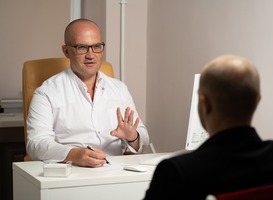The transition from juvenile to adult psychiatry causes fewer problems than previously thought. This emerges from the European research led by Erasmus MC Sophia. Many young people who need it also know how to find psychiatric assistance in adulthood. Erasmus MC brings it back.
For a long time it was thought that the transition from juvenile to adult psychiatry would create problems, because young people would fall between two feces. New research published in The Lancet Psychiatry paints a different picture. Many young adults do not require further follow-up after their treatment in child and adolescent psychiatry. Those young people who need psychiatric care can often transition into adult psychiatric care.
Note
This is both good and surprising news, think doctoral candidate Suzanne Gerritsen and child and adolescent psychiatrist Gwen Dieleman of the research team. However, they also have caveats. “The research is not about how the transition process to adult care has gone. For example, waiting lists are still a big problem in many countries and the organization of this transition can also be much improved. small group of young adults see an upward trend when it comes to post-care psychological disorders within child and adolescent psychiatry”.
Transition care
The researchers are calling for a follow-up study. “To better define the group with increasing psychological disorders, so that professionals recognize these young people and can refer them appropriately. It is important that general practitioners take young adults with new disorders seriously and refer them quickly to adult psychiatry. We therefore believe that investments should be made in transition care specifically for those young people.”
By: National Care Guide


